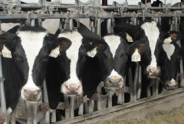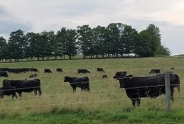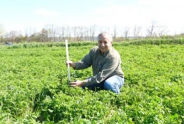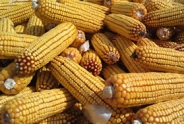Hiring Asylees Into Agriculture and Food Manufacturing Jobs
Event Details
Date
April 5, 2024
Time
11am - Noon
Location
Zoom
Host
Cornell Agricultural Workforce Development
This webinar will share what we have learned about asylee skills and interests, services that the NYS Department of Labor is providing to employers and asylees authorized to work, and experiences of agricultural employers who have successfully integrated asylees and refugees into their workforces. Learn how to prepare to accept asylees as part of your labor pool.
Click here to register for this free webinar.
New York City has experienced an influx of asylum seekers. These individuals represent a new pool of labor available to agricultural employers. Many come with work experience in agriculture and food manufacturing from their home country. All are eager to find full-time employment.
This webinar will share what we have learned about asylee skills and interests, services that the NYS Department of Labor is providing to employers and asylees authorized to work, and experiences of agricultural employers who have successfully integrated asylees and refugees into their workforces. Learn how to prepare to accept asylees as part of your labor pool.
Webinar held by Cornell Agricultural Workforce Development, Cornell Small Farms, and Dairy Foods Extension.
Upcoming Events
New York State Fiber Conference
June 9, 2024
Bouckville, NY
Theme for this year: Quality Matters
Announcements
Cash Rent and Custom Harvest Survey
To date, there is limited information available about rental rates and fees for crop harvesting. Farms can use this valuable information for their farm business planning to help improve decision making and profitability.Farmers Can Join MeatSuite For Free!
MeatSuite.com is a free resource provided by Cornell University where NY meat farmers can create a farm profile and list their bulk (wholes, halves, quarters) and bundled (i.e. Grilling Bundle) meat products.Why should farmers join?
1. It's free and easy!
2. Connect with more local customers. In the past year the MeatSuite.com farm directory had 8,300 visits from New York consumers. Farm profiles get as many as 25 views per month from potential local customers. We also spotlight MeatSuite farms on social media and bring attention and purchases to farms through highlights and giveaways.
How do I join?
Farmers can visit https://www.meatsuite.com/farmers/ to create a free farm profile. You must list at least one product for your farm's profile to go live. You'll also have access to Cornell's free Meat Price Calculator, a helpful tool for pricing your meat to make a profit.
While you're on MeatSuite, check out the "Creating Consumer-Friendly Bulk Meats" publication on the log-in page. It has tips on how to create bulk meat products that are easier for first-time buyers to say "yes" to.
If you have any questions as you create your farm profile or products, we're here to help! Please email Matt LeRoux at mnl28@cornell.edu.





